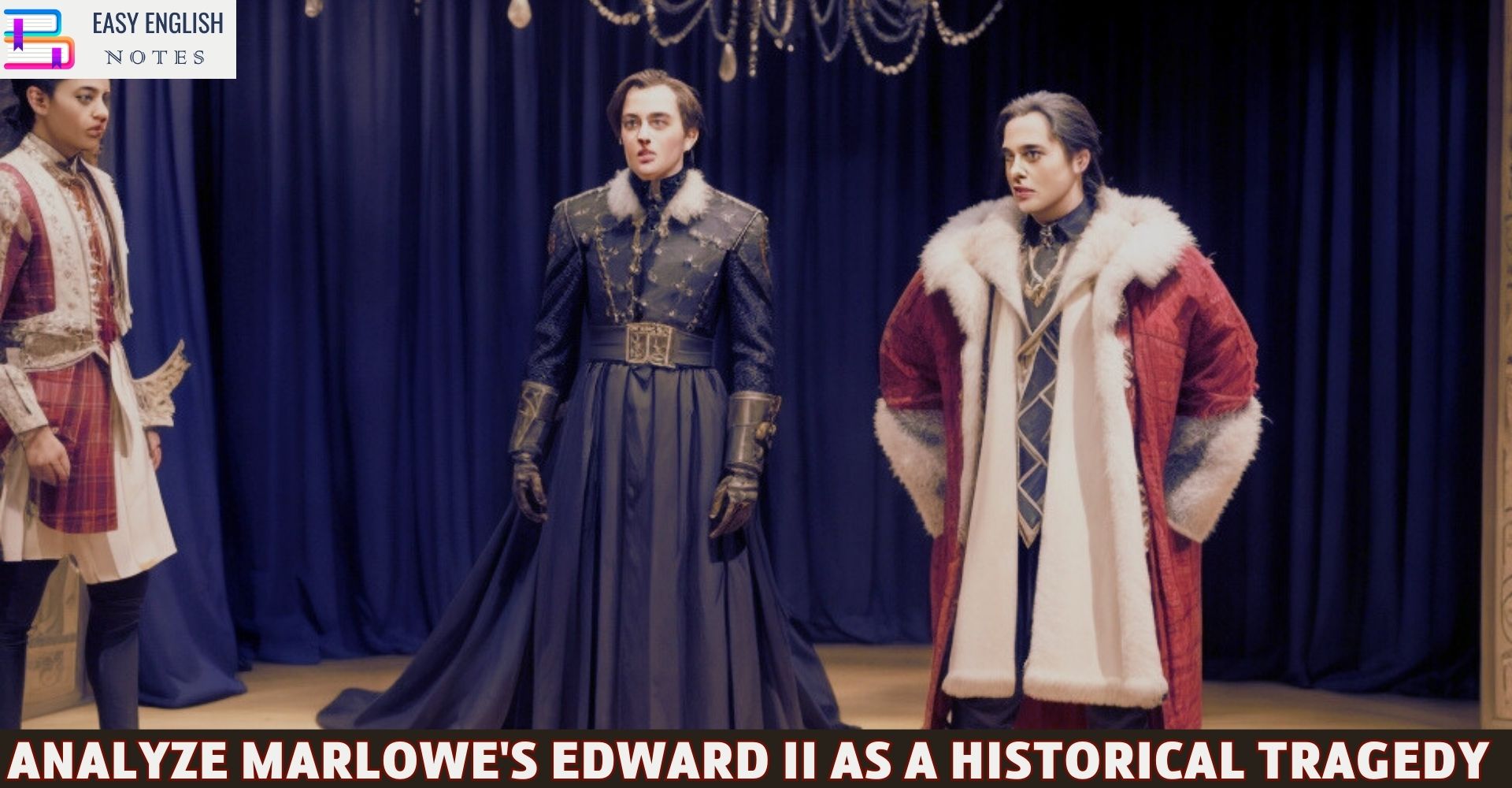It is an established fact that Edward II is Marlowe’s masterpiece from artistic point of view. It is the structural triumph of the dramatist. In it Marlowe attains to a dramatic unity which is absent from his earlier plays. Tamburlaine and Faustus are nothing but succession of scenes united with only the hero. The successive scenes present different aspects of the glory and achievements of the hero. The scenes are interconnected because of the presence of the hero and also because they stress only one thing, ie, the power and greatness of the hero. Each of his early plays is dominated by a display of one all-powerful passion in the person of the chief character. Tamburlaine, Barabbas or Faustus. Other characters are imperfectly defined: they are foils to the hero. But in Edward II, while the king himself is the dominant character, the others have their individuality, though not as clearly portrayed as in even the earliest work of Shakespeare. It is because Edward II is better constructed than the earlier plays. It has a better-knit plot which gradually unfolds both character and domestic conflict.
In Edward II Marlowe has endeavoured well to present a real dramatic conflict between two contending forces. In Tamburlaine, these forces are so unmatched that there is hardly any dramatic conflict in the play. We know that the hero is invincible and will crush and overpower any opposition that comes before him. Hence he is not a human being, but a super-human being. and with such a man as the hero of the play, a real dramatic conflict cannot be experienced. Likewise, in Dr. Faustus, there is no dramatic conflict worth the name. There is little conflict when the play opens. This too is soon over, for Dr. Faustus decides to sell his soul to the Devil. After this he does not actually suffer from any mental conflict or qualm of conscience till the end of the play. when he sorely repents for his deed of selling his soul to the devil. But in Edward II, there is real dramatic conflict between the king and his opponents. This conflict continues till the end of the play with varying vicissitudes. At one stage, the king is able to defeat the rebel lords, but in the end, he is defeated and finally executed by the treachery of his own disloyal Queen.
Then Edward II displays an artistic restraint which is absent in the earlier plays. There are no long tirades in this play, no lyrical outbursts. John Bakeless praises Marlowe for a fine restraint in Edward II “Marlowe overcomes for the first time his tendency to the carried away by the splendour of mere words. He has learned to restrain his love for resounding but bombastic lines.” The dialogues, on the whole, are superior to those we find in the earlier plays. Even the blank verse reveals a maturity and mellowness.
Also Read :
- Compare Hamlet with Macbeth, Othello and other Tragedies
- “The Pardoner’s Tale” is the finest tale of Chaucer
- Prologue to Canterbury Tales – (Short Ques & Ans)
- Confessional Poetry – Definition & meaning
- Line By Line Explanation Of The Poem The Eve of St. Agnes
Edward II is most remarkable for its two famous scenes: the Deposition scene and the Murder scene. In writing of the Deposition scene in Edward Charles Lamb commented. The reluctant pangs of abdicating Royalty in Edward furnished hints which Shakespeare scarce improved in his “Richand II. Of the Murder scene, he said, that it moves pity and terror beyond any scene ancient or modern, with which I am acquainted.”
But notwithstanding its technical excellences and intensely pathene scenes. Edward Il does not appeal as Shakespeare’s historical tragedies d Whereas Shakespeare’s tragedies deal with lofty universal ideals, frustration and weakness are Marlowe’s themes in Edward I. A great tragedy issues fran the greatness of the hero’s soul. Shakespeare’s tragic heroes are great men n only in the sense that they are kings and generals, but also because they possess a great character. They possess goodness and greatness in them. Hamil is a man of lofty ideals: Macbeth and Othello are men of outstanding qualities Lear has the nobility of soul. Accordingly. Shakespeare’s tragic heroes evoke feelings of pity and fear. Marlowe’s Edward II is a king of different nature. He is not only a fool but a coward. Till almost the end, the play displays colossal spectacle of folly. inefficiency and cruelty, which issues from the hero’s character “Indignity here makes it masterpiece. Forcibly shaved, washed in puddle water, confined in darkness and filth, maddened by a heating drum, thrown his food like a dog. denied human contact except with the Guoler who taunt and insult him, this king is the very embodiment of humiliated mankind ?”
PLEASE HELP ME TO REACH 1000 SUBSCRIBER ON MY COOKING YT CHANNEL (CLICK HERE)











